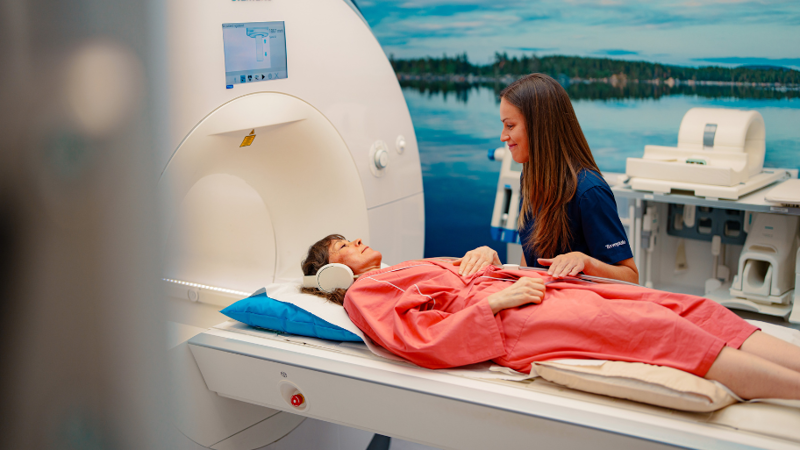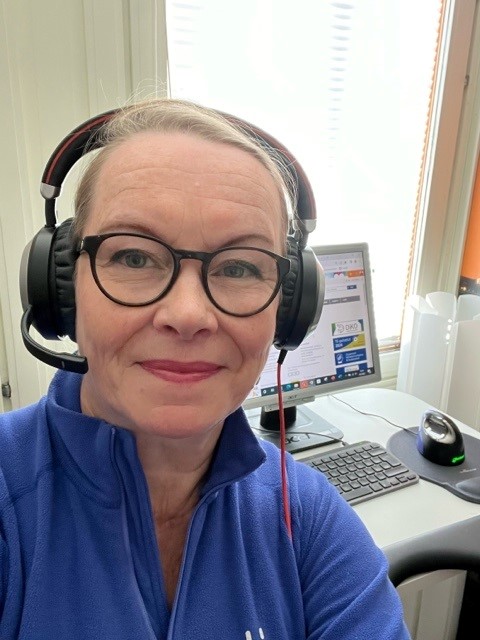Low-threshold mental health services for better work ability
Mental health absenteeism among staff in the ELY Centres, TE Offices and KEHA Centre had increased and there was a need to address this risk quickly. Solutions to manage the mental stress of staff were sought through low-threshold mental wellbeing services and brief psychotherapy in occupational health, and the importance of mental wellbeing was emphasised internally in the organisational culture. Low-threshold wellbeing services are now well established, easy to find and with positive user experiences. In addition, there was a significant reduction in psychological symptoms among participants in brief psychotherapy and a corresponding increase in perceived psychological well-being.

The staff of the ELY Centres, TE Offices and the KEHA Centre have a very diverse range of tasks. The ELY Centre has three areas of activity; transport, environment and business, so depending on the job description, the work can be more physical groundwork and construction work or more customer service-oriented work with business clients or individuals. In TE Offices, people work in demanding specialist roles and much of the work is done at the client interface. The KEHA Centre is the joint development and management organisation of the above organisations.
In particular, the psychological strain on those working at the customer interface has increased in recent years, both because of the global situation, which is a cause for general concern, and because of the planned restructuring of the sector, as the transfer of TE services to municipalities from the beginning of 2025 has been planned from 2020. The strain has been reflected in an increase in mental health-related absences, and one of the solutions is the introduction of the Terveystalo occupational health low-threshold mental well-being support services Mental chat and Mental sparri and the occupational health brief psychotherapy for mindfulness.
|
Sirpa Siikaluoma, Head of the Well-being at Work and Recruitment Services Team at KEHA. |
Mental chat and Mental sparri has been offered to all staff in the organisation since mid-2020. The majority of those who have used the chat continue to unload their minds at the Sparri reception, but some are referred to an occupational health professional on the basis of medical concerns, so that any risk to their work cycle can be tackled early on. – The year 2020 will surely be remembered for the pandemic that shook the world, which also made it necessary for our staff to unload their mental burden with a professional. In the acute pandemic moment, we managed to introduce low-threshold mental health services in an agile manner, which contributed to our staff's resilience and helped them deal with the challenging situation. The concern about Covid-19 is receding, but the reasons for contact still reflect the impact of non-work-related factors and the stresses and strains of personal life on work capacity, says Sirpa Siikaluoma, Head of the Wellbeing and Recruitment Services Unit at KEHA. |
|
Low-threshold mental health services have been well identified among staff, as information about them was not a one-off campaign at the time of implementation. – Simply mentioning it in the occupational health contract does not change things, but the most important thing is that there is a culture in the organisation where mental health problems are accepted and people are referred to treatment. Our management and frontline staff have an important role to play in regularly raising the issue and reminding people of the existence of services, adds Kaarina Autio, a wellbeing expert at the KEHA Centre. |
Kaarina Autio, KEHA's well-being at work expert. |
Effective results with brief psychotherapy in occupational health
In response to increasing mental health-related absenteeism in ELY Centres, TE Offices and KEHA Centre, occupational health brief psychotherapy was introduced from the beginning of 2022 to support staff's ability to work and help them cope with difficult emotions in order to avoid long periods of mental health-related absenteeism.
– We have received positive feedback on the brief psychotherapy from both employees and frontline staff. A follow-up study at the end of the treatment period showed that the perceived mental wellbeing and functioning of the participants improved and their mood symptoms were reduced to a very mild level, so the first year's results are impressive, says Siikaluoma.
– The magnitude of the change, and therefore the effectiveness of brief psychotherapy, has been clinically significant in this organisation as well. The feedback collected at the end of the treatment has also praised the way the therapy has provided tools for managing stress, says Tuija Turunen, Terveystalo's Chief Psychologist and Psychotherapist.
Read more occupationa health articles

How technology helps relieve mental stress: "When the load is high, the threshold must be low."
Mental health disorders have overtaken musculoskeletal disorders, which had long been the leading cause of sick leave. Work is changing, and the range of sick leave caused by mental health issues has also changed. We must be able to offer new solutions to this challenge.

Extensive data set of 200,000 samples: Nightingale study reveals link between illness risks and sick leave
Data from the Finnish Nightingale study, which is used in Terveystalo's occupational health services, reveals a clear link between lifestyle-related health risks and sick leave. The exceptionally extensive data set of over 200,000 customers shows that people with a low risk of illness had significantly fewer absences, while those in high-risk groups had more absences. The results highlight the importance of preventive healthcare in ensuring work ability and the competitiveness of companies.

Strong identification speeds up your service experience when calling us
Soon you can identify yourself easily and securely before your call is answered. Read below to see how the identification process works.

Terveystalo's digital services have been awarded the internationally recognized ISO27001 information security certification.
Terveystalo's information security practices, processes, and risk management are in line with international best practices.

Does massage help relieve stress? – Touch restores and calms the body and mind
Stress is not always visible on the outside, but the body does show signs when the strain increases. According to Lassi Ylönen, a trained massage therapist at Terveystalo Rela, the body often communicates stress through subtle signs.

Circular economy and artificial intelligence boost performance and improve care
At the heart of sustainable healthcare, technology serves as a tool for improving both the quality of care and accountability. Terveystalo favors solutions that combine sustainability, cost-effectiveness, and medical expertise.

